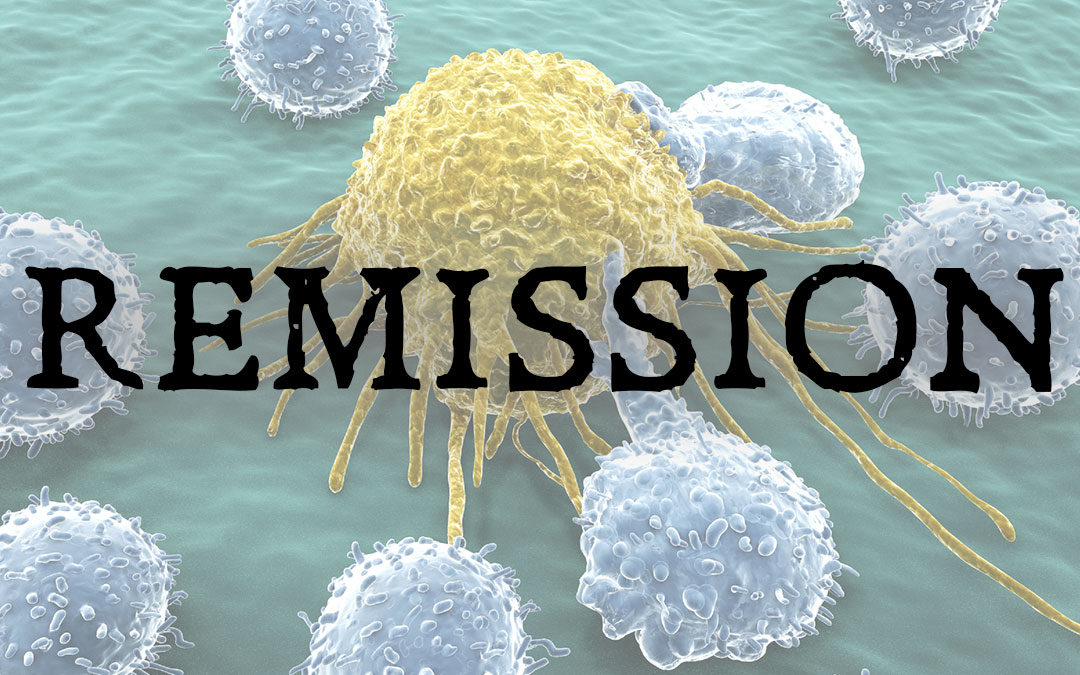A cancer Diagnosis is Traumatic
Being diagnosed with cancer is traumatic to say the least. For most, going through cancer care can be physically devastating, from the effects of cancer itself, the side effects of toxic and disabling chemotherapy, as well as invasive and often disfiguring surgery.
Let’s not forget the effects of radiation therapy, hormone modifiers, immunotherapy and, sometimes, stem-cell and bone-marrow transplants that can lead to graph-vs-host disease (someone else’s white blood cells attacking your body).
Along with the physical effects of cancer care comes the emotional anguish of dealing with a cancer diagnosis, treatment, and the language of cancer: survivor, survival rate, metastasis, cancer staging, and the word I really hate—remission.
Cancer Remission
Remission is defined as a decrease or disappearance of signs or symptoms of cancer.
It is further broken down into partial and complete. Partial remission means some of the signs and symptoms have disappeared, while complete remission means all signs and symptoms of cancer have disappeared, although it may still be in the body and at some future time may come back.
A question for thought: if someone is in “complete remission,” how does that differ from someone who has not been diagnosed with cancer, who also has no signs or symptoms of a detectable disease?
Could the reason someone has a reoccurrence and “comes out of remission” be because the original cause of the cancer was never discovered and resolved?
The cancer wasn’t hiding behind the liver; it wasn’t on an intermission, nor was it on probation. If your internal terrain favors the development of cancer, it will develop again.
Why Metastasis is inefficient
You may be thinking there may still be rogue cancer cells floating around in the body after treatment. Perhaps. However, according to The New England Journal of Medicine, and Cell, a tiny minority or .01% of cancer cells that get away from a primary tumor (metastasize) have the ability to survive in the body.
The reason is that a healthy immune system, a normal internal pH, nutrients from whole foods, and healthy tissues make the body very hostile to invading cancer cells. If cancer recurs, look to the internal environment, which has allowed the survival of cancer cells.
Why I hate Remission
So, here’s my issue with the word remission and the psyche around it.
When you hear you are in remission, you really hear that you’re not cured and it—the cancer—may come back, maybe soon, maybe never, but it may come back.
This emotional black cloud hovers over you; the underlying mental tone is now set up for your disease to come back. That worry and fear causes the release of a mixture of stress hormones, thus destroying an aspect of the immune system and opening you up for cancer’s return.
You weren’t dealt a bad hand of cards.
You weren’t the ‘chosen one’ to get cancer and now have to fight for your life.
If you created an unhealthy internal terrain from processed, nutrient-absent foods, unresolved stressors, the voluntary ingestion or inhalation of toxins, hormone therapies, lack of exercise, too much body fat, and other unfavorable behaviors, you have set the stage for the development of cancer.
If we realize that our actions can lead us down a path to disease, then it’s obvious that taking the right actions will reduce the emotional anguish associated with the potential return of cancer after a hiatus, aka ‘remission.’
For several years following my cancer care, I was plagues with the looming black cloud of remission until I realized that I had more control over my health and my future. Twelve years later I’m in excellent health and lovin life!
Check out my cancer journey here.
References
Chiang A, Massagué J, Molecular basis of metastasis, New England Journal of Medicine 2008;359:2814-23
Gupta G, Massagué J, Cancer metastasis: building a framework, Cell 127, November 17, 2006

Recent Comments